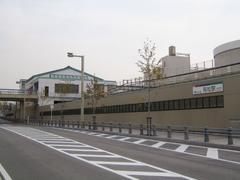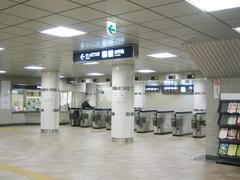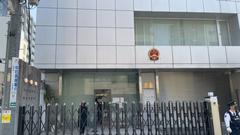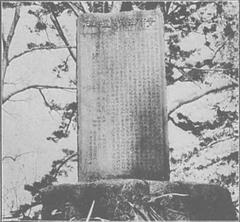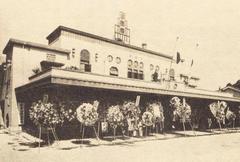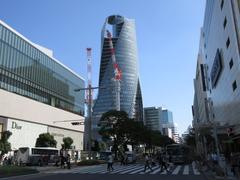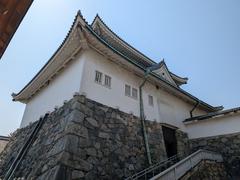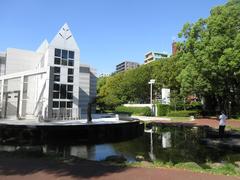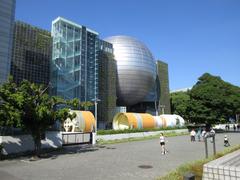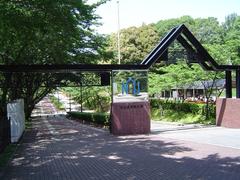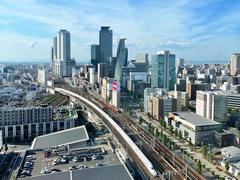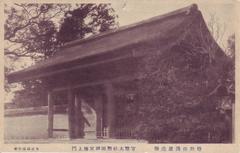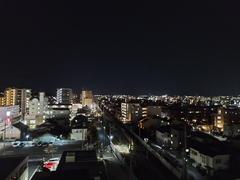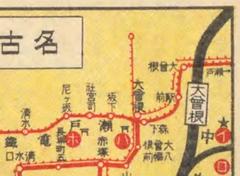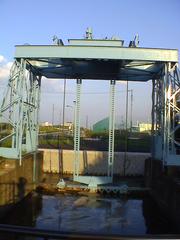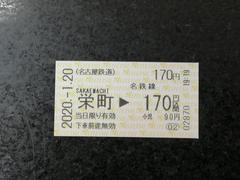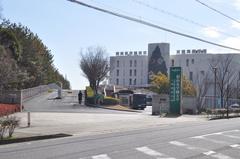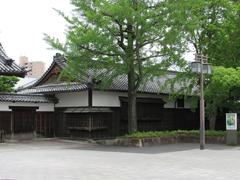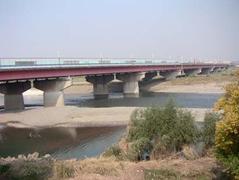Tokai Gakuen University Visiting Guide: Nagoya, Japan — Tickets, Hours, and Tips
Date: 14/06/2025
Introduction
A visit to Tokai Gakuen University (TGU) in Nagoya, Japan, offers a unique window into an educational institution that harmonizes over a century of tradition with modern academic innovation. Originally founded in 1888 as a branch of a Jodo-shu (Pure Land Buddhism) clergy training school, Tokai Gakuen University has since evolved into a comprehensive university grounded in the values of diligence, sincerity, and coexistence. With its dual campuses—the expansive Miyoshi Campus and the conveniently located Nagoya Campus in Tenpaku Ward—TGU provides an enriching environment for academic exploration, cultural discovery, and community engagement. This guide details the university’s history, philosophy, campus features, visiting information, and practical tips for enjoying both campus life and Nagoya’s nearby cultural treasures, such as Nagoya Castle and the Osu Shopping District (Tokai Gakuen University Philosophy; Nagoya Campus Facilities; Tokai Gakuen Visitor Info; Nagoya Castle Official Website).
Contents
- Tokai Gakuen University: History, Philosophy, and Visitor Essentials
- Historical Development
- University Philosophy and Emblem
- Practical Visiting Information
- Cultural and Social Impact
- Nagoya Campus: Complete Visitor Guide
- TGU Visitor FAQ
- Nearby Attractions: Nagoya Castle and More
- Summary and Planning Resources
Discovering Tokai Gakuen University
Historical Foundations
Tokai Gakuen University traces its roots back to 1888, emerging as a branch of a Jodo-shu Buddhist clergy school. Over 130 years, the institution has expanded to include Tokai Junior High School, Tokai High School, Tokai Gakuen High School, and, in 1995, Tokai Gakuen University itself. This evolution was driven by the need for higher education in the Chubu region, and today, TGU stands as a prominent private university in central Japan (Tokai Gakuen University Philosophy).
Academic Growth and Campus Expansion
TGU initially launched with a School of Business Management and now boasts six undergraduate faculties: Business Administration, Humanities, Psychology, Education, Sports and Health Science, and Health and Nutrition. The university also offers graduate programs, including MBAs and specialized tax accounting tracks. Its two campuses serve distinct purposes:
- Miyoshi Campus: Located in Miyoshi City, this campus is notable for its extensive sports and health science facilities.
- Nagoya Campus: Situated in Tenpaku Ward, it features modern libraries, learning commons, and convenient access to Nagoya’s city center (Nagoya Campus Facilities).
Philosophy and Educational Ideals
Founding Spirit and “Tomoiki”
Tokai Gakuen University’s educational philosophy is rooted in the principle of “勤倹誠実” (diligence, frugality, sincerity), encouraging lives of gratitude and dedication. The university also upholds the concept of “共生 (Tomoiki)”—living together in harmony—reflecting an ethos of coexistence and mutual respect inspired by founder Benkyo Shiio (Tokai Gakuen University Philosophy).
Educational Objectives
TGU focuses on cultivating “human power” (人間力, ningen-ryoku), which encompasses intellectual ability, character, empathy, and practical skills. Academic rigor is balanced with experiential learning to prepare students for real-world challenges.
Emblem and Logo
The university’s emblem, evolving from the traditional Jodo-shu crest, now incorporates the letters “T,” “G,” and “U” to symbolize students, faculty/staff, and campus—reinforcing its community-focused philosophy (Tokai Gakuen University Philosophy).
Practical Visiting Information
Visiting Hours and Campus Tours
- General Hours: Monday–Friday, 9:00 AM–5:00 PM.
- Guided Tours: Available by advance reservation; open campus events held throughout the year.
- Visitor Registration: Check the official website for current schedules and tour booking.
Admissions and International Services
TGU provides detailed admissions guidance, including support for international applicants, entrance requirements, and scholarship opportunities. The admissions office offers assistance in English and Japanese (Tokai Gakuen Visitor Info).
Transportation and Access
- Nagoya Campus: Easily reached by subway and bus from central Nagoya; located in Tenpaku-ku.
- Miyoshi Campus: Accessible via local trains and buses from Nagoya Station.
Campus maps and travel details are available on the university website.
Facilities and Features
Both campuses offer:
- Modern libraries and learning commons
- Sports facilities (including gyms, athletic fields, and indoor pools)
- Cafeterias and convenience stores
- Scenic gardens and outdoor event spaces
Photogenic spots include the university emblem displays and landscaped areas.
Cultural and Social Impact
Regional Presence and Alumni Network
TGU is a key educational player in the Chubu region, with over 120,000 alumni active in various fields. The university’s community engagement supports regional development and career networking (Tokai Gakuen University Philosophy).
Tradition Meets Modernity
Blending its Buddhist heritage with progressive academics, TGU is committed to a holistic educational approach that values both tradition and innovation.
Internationalization and Practical Learning
TGU emphasizes hands-on education through labs, collaborative projects, and partnerships with local industries. International students are welcomed, with robust language and cultural support (Tokai Gakuen Visitor Info).
Nagoya Campus Visitor Guide
Campus Overview
The Nagoya Campus at 2-901 Nakahira, Tenpaku-ku, is characterized by its accessible layout and modern buildings, including:
- Administrative and support centers
- IT-equipped lecture halls and seminar rooms
- Specialized labs for nutrition and clinical practice
- Student cafeteria and convenience store
- Gymnasium, tennis courts, and outdoor event spaces
- Extensive library with access to resources from both Nagoya and Miyoshi campuses
(Nagoya Campus Facilities)
Student Life and Services
- Cafeteria: Open weekdays, 11:00–14:00, serving a range of Japanese and international dishes.
- Library: Open weekdays 8:45–18:30 (shorter hours on Saturdays).
- Student Hall: Includes a convenience store (8:30–16:30).
- Health & Counseling: Confidential services available.
- Career Center: Job counseling and placement support.
Accessibility
The campus is fully accessible, with ramps, elevators, and English-language support available in administrative offices.
Academic Programs
Nagoya Campus houses faculties of Humanities, Psychology, Education, and Health and Nutrition. Programs focus on practical skills, professional qualifications, and advanced education in areas such as data science and AI.
Visitor FAQ
Q: What are official visiting hours?
A: Weekdays from 9:00 AM to 5:00 PM. Some facilities have specific hours; check the university website for details.
Q: Is there an admission fee or ticket required?
A: No fee for general campus visits. Some events may require registration or tickets.
Q: Are guided campus tours available?
A: Yes, by reservation, especially during open campus events.
Q: Can visitors use the library?
A: Visitors may access the library with prior registration.
Q: Is the campus accessible for people with disabilities?
A: Yes, with accessible pathways and facilities.
Nearby Attractions: Nagoya Castle and More
Nagoya Castle
A highlight for any visitor to Nagoya, Nagoya Castle is famed for its golden shachihoko, reconstructed Honmaru Palace, and lush gardens.
- Visiting Hours: 9:00 AM–4:30 PM (last entry 4:00 PM; closed Dec 29–Jan 1)
- Admission: 500 yen for adults; discounts available; free for children under 15
- Access: Subway Higashiyama Line to Sakae, transfer to Meijo Line (Shiyakusho Station); 5-minute walk
- Tickets: Available at entrance or online
(Nagoya Castle Official Website)
Other local attractions include the Toyota Commemorative Museum of Industry and Technology and the bustling Osu Shopping District.
Summary and Planning Resources
Tokai Gakuen University offers a rich educational and cultural experience rooted in historic Buddhist values and forward-looking academics. Its dual campuses cater to a wide range of interests, while its proximity to Nagoya’s historical and modern attractions makes it a rewarding destination for students, researchers, and travelers alike.
For the latest visitor information, campus maps, and event updates, consult these official resources:
- Tokai Gakuen University Philosophy
- Nagoya Campus Visitor Guide
- Tokai Gakuen Visitor Information
- Nagoya Castle Official Website
Download the Audiala app for guided campus tours, and follow Tokai Gakuen University on social media for the latest news and events. Whether your interest is academic, cultural, or personal enrichment, TGU and its surroundings promise an inspiring experience in Nagoya’s vibrant heart.
Sources and Further Reading
- Discover Tokai Gakuen University: History, Philosophy, and Visitor Information, 2025, Tokai Gakuen University (Tokai Gakuen University Philosophy)
- Visiting Tokai Gakuen University Nagoya Campus: Facilities, Programs & Visitor Information, 2025, Tokai Gakuen University (Nagoya Campus Visitor Guide)
- Visiting Tokai Gakuen University (TGU) in Nagoya: Visitor Information, Campus Highlights, and Nearby Attractions, 2025, Tokai Gakuen University (Tokai Gakuen Visitor Information)
- Visiting Nagoya Castle: A Guide to History, Tickets, and Cultural Highlights, 2025, Nagoya City Government (Nagoya Castle Official Website)
